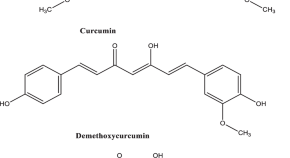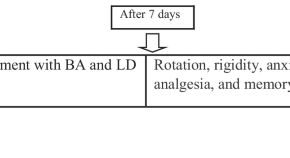Curcumin attenuates memory impairments and long-term potentiation deficits by damping hippocampal inflammatory cytokines in lipopolysaccharide-challenged rats
Authors (first, second and last of 7)

Collection
It has been established that the common neurodegenerative diseases such as Alzheimer disease (AD), Parkinson disease (PD), Huntington diseases (HD), amyotrophic lateral sclerosis (ALS) and other motor neuron disease are sporadic in nature and rarely caused by a single gene mutation. In fact, such disorders are commonly influenced by a wide range of genetic, epigenetic and environmental factors that dysregulate numerous signaling pathways at cellular and molecular levels. More importantly, the number of patients with neurodegenerative disorders is dramatically increasing with age. This situation crafts a momentous need to improve our understanding of pathophysiology of the diseases as well as to develop new approaches for the treatment and prevention of disability and mortality. This special issue focuses on the challenges addressed by researchers around the world for the treatment/prevention of such disorders using natural products. It could be as a single molecule as well as whole plant extracts with underlying mechanistic details.
In this special article collection, Saleem et al. (2022a) studied the effect of Sarcococca saligna in cognitive and motor dysfunctions and found that it significantly regulated mRNA expression of neurodegenerative and neuro-inflammatory biomarkers with histological support. Saleem et al. (2022b) investigated the curcuminoids-rich extract formulation in PD model, where it significantly regulated mRNA expressions of neuro-inflammatory and PD-specific pathological biomarkers. The antidepressant potential of commonly used mango seeds (Mangifera indica) is discussed by Saleem et al. (2022c) and suggests it to be an effective alternative therapy for the treatment of depression. Similarly, Saleem et al. (2022d) illustrated the anti-Alzheimer effect of Malva neglecta extract studied in a followed article by modulation of cholinergic pathway. Oxidative stress is considered as a primary factor in aging-related memory impairment. This problem was addressed by Yue et al. (2022) using polysaccharide from Momordica charantia and observed its administration is a useful anti-aging agent that improves memory. The effect of betulinic acid on memory complications in PD is evaluated by Abrishamdar et al. (2022). The results showed significant effect of betulinic acid on motor and non-motor complications in PD. Vannur et al. (2022) target the imbalance of dopamine and acetylcholine levels in PD by Vitex negundo leaves extract. It caused significant restoration of the cholinergic function, and increased the dopaminergic function. Kaur et al. (2022) presents a comprehensive overview of the therapeutic potential of erythropoietin as a pleiotropic neuroprotective agent in the treatment of AD. Shehzad et al. (2021) demonstrate the potential role of Cucurbita pepo extract in PD model by modulating various biomarkers. Gravandi et al. (2022) discuss the potential neuroprotective role of flavonoids that modulate the AMPK/PGC-1α signaling pathway. Hajipour et al. (2022) display significant effect of curcumin on memory impairment by modulating inflammatory mediators.
This collection of research and review articles demonstrates the potential role of plant-derived compounds in the treatment of neurological disorders. I am confident that the readers will enjoy this collection and that it will be useful in their future research.
Dr. Haroon Khan
Abdul Wali Khan University, Mardan, Pakistan










